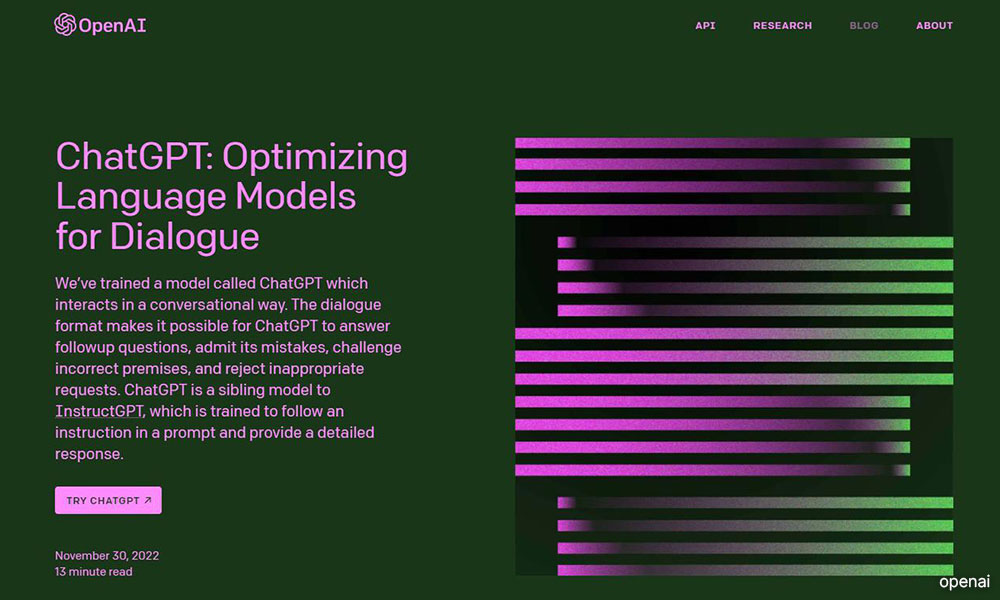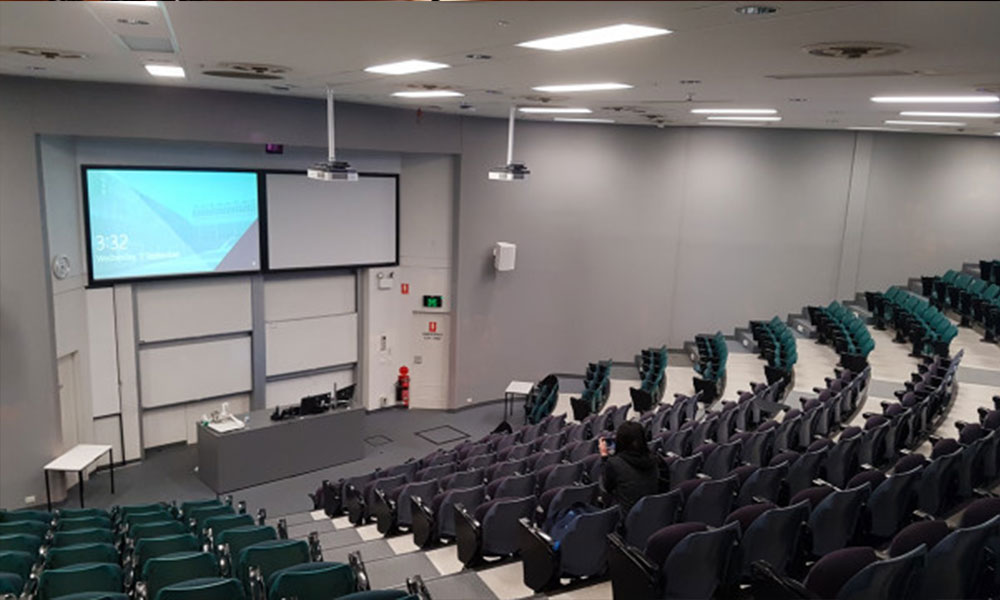What does it mean to teach students to write in the age of ChatGPT, where a few quick prompts fed into a machine can deliver a bespoke, slickly crafted essay in 30 seconds, and where said technology is only getting more and more convincing with time?
This post deals not so much with the technicalities of how to do so (there’s plenty of good advice out there already), dealing instead with the why?
Does the rise of on-demand Large Language Models mean the death of writing (and the obsolescence of writing instructors), confined to the scrap heap of history together with the steam engine, single-cropping paddy fields and the horse-drawn carriage? This is my take as a tech optimist, language teacher and education researcher.
What’s cooking in academia?
It would have been pretty hard to miss the explosion of interest in ChatGPT (and other AI-assisted writing programs) over the past few months.
This has been due to ChatGPT’s impressive ability to very quickly produce detailed and human-like responses to the prompts that you give it–ranging from asking it to write a five-paragraph persuasive speech about recycling, or asking it to generate a 10-year strategic plan to grow a university (I asked).
Very quickly we as lecturers have started using it to speed up some of our work processes, and at the same time, we have (rather predictably) encountered a small number of students using it as a shortcut to writing their assignments.

Ironically, plagiarism-checking software like long-time player Turnitin and the new kid on the block GPTZero themselves use AI to (pretty fallibly) check for plagiarism.
So, it is (rather hysterically) very much a battle of AI against AI, with a for-profit company or two happily pocketing the difference for making our lives ‘easier’.
Calculators and the abacus
On one level perhaps we can rejoice at again finding something that makes life easier. For as long as humans need to coordinate themselves as organisations, communities, and nations, we need heaps of writing to keep things going.
By writing, of course, I’m not just talking about a man smoking a pipe and scrawling the words of his latest novel on a piece of parchment, nor am I just referring to students seated in their classrooms, scrambling to complete two-page essays assigned by their English teacher (sorry kids).
Writing is integral to so much of communication: advertisements, signboards, internal corporate memos, laws being passed in Parliament (even the Constitution), love letters, employment contracts, and even meme-laden Instagram captions. We need to do so much of it, so any amount of assistance is welcome.
An analogue to automated writing then is a bit like being able to ask a calculator to find the square root of a number or to do some other nasty sums your teacher asks you to do (once again, sorry kids!).
Because we have calculators, we no longer need to use the abacus, even do calculations by hand. We get to do way more Math at greater accuracy and with considerably less effort.
What’s not to like?
Icebergs and weightlifting
But what then about writing? Perhaps it would help to ask, “What is it that really happens when somebody writes?”
Yes, through our pens or keyboards, those letters appear on paper or on screen - but that’s merely what we see on the surface. It’s like the tip of the iceberg: what you see above the waterline is held up by what is underneath, and in fact, it’s what is underneath that you’re really interested in (because it makes the difference between whether your ship just takes some hull damage vs it totally sinks like the Titanic).
I like to think of writing as both cognitive (relating to thinking) and affective (relating to feeling). Both of these are inseparable parts of what makes a person a person, and so writing in a way is always personal, and sometimes is a matter of who you are becoming as a person.
Cognitively speaking, you know how it is that sometimes you’re not 100 percent sure of what you really think until you’ve had to say or write it? That process of language production forces us to spot the gaps in our reasoning, to realise if we’re thinking fuzzily about something, or to turn our vague notions into something clearer and more concrete.
That’s why good questions are so powerful: they elicit thinking and make ideas coalesce. That’s also why diary-writing and elicited reflections are so powerful. That process of writing helps us clean up our often cluttered and messy thoughts. It’s not a perfect process, but it’s helpful.
In that respect, while it is true that getting a ChatBot to write your college assignment may get you a decent grade (if it gets past your eagle-eyed assessor, so far my colleagues and I feel like there are fairly obvious giveaways), it doesn’t change the fact that you haven’t done the work to clear up your thoughts and develop a clear position about the topic of the assignment.

You’ve essentially deprived yourself of the opportunity to practise your mind and strengthen those thinking muscles. Your iceberg may look pretty above the water, but the ice is thin and will not hold.
And so, this is where the analogy drawn with horse-drawn carriages breaks down. While it is true that certain activities, like horse-drawn carriages and their drivers, will be totally outmoded by new technology, that should not be true of fundamental activities that are essential to our well-being.
I mean sure, we have elevators/lifts and we’re glad for it, but there are good reasons to use the stairs for our health and well-being.
We also have forklifts that will carry many times the maximum weight that the strongest person on earth can manage, but we still go to the gym to do (seemingly pointless) resistance training–but we do these because of all the benefits that they confer to us.
Some (not all) of the seemingly outmoded and inconvenient things we do in education are like that too. We do them a certain way not because there isn’t a faster and easier way to do them, but because it’s brain gym, basically.
Love letters and PhD theses
It’s like what someone once told me about doing a PhD: the process is vital because the product of doctoral studies isn’t just your written thesis and academic articles (although those are undoubtedly valuable), the chief product is you, the person who’s become whoever it is you are after going through all of it, and all the benefits that derive from the personal and professional growth.
I think, speaking particularly in the Malaysian setting, that there is a tendency to think about education mainly as acquiring (especially credentials and qualifications, but also sometimes knowledge and skills) but forget that education is also about becoming a person (identity, personhood, dispositions, attitudes, experiences, memories).
Let’s take an example I used in a seminar recently: writing love letters. Let’s say it’s my wedding anniversary tomorrow and I’d totally forgotten to write something nice for my spouse. In haste, I whip open my browser to ask ChatGPT to generate something on my behalf.
Well, first of all, she can probably tell it wasn’t by me (unless I do some pretty extensive editing such that I might as well have written on my own), secondly, it will probably not have its desired effect if she knows it wasn’t by me, macam tak ikhlas (it feels insincere) and thirdly, it really is the thought that counts with this genre of writing.
What matters when you write for somebody you care about is that you are in the writing, that it’s a manifestation of who you are in relation to the person you’re writing to. That’s the whole point of the thing, and once you remove it… well, what do you have left?
Let’s face it, Mr Darcy’s letters in ‘Pride and Prejudice’ are the standard by which we are judged.
Perhaps I am getting carried away. I started by talking about college assignments and now I am talking about love letters. We must remember, however, two crucial points.
The first is that good writers are good writers – yes, it is true that some writing skills are context-specific, but lots of them are also transferable across genres and to an extent even across different languages.
The second is those good writers become good through a steady diet of reading, intentional practice, and good advice. Schools and universities may not always be doing the best job to cultivate good writing, but they’ve got the right idea to want to do so.
Technology and being human
As I said at the beginning, I am generally very optimistic about technology. I am thankful for washing machines, computers and auto-gates for making life better and easier, freeing us from mundane and repetitive tasks and freeing us for other pursuits.
In no way am I romanticising the 17th century when a person like me would almost have suffered a lot more to eke out a living on low-yield farmland, or mining for ores (with an expected lifespan of 50+ years).
As the protagonist in the Bollywood movie ‘3 Idiots’ said, machines reduce human effort and that is an excellent thing.

But as you can tell, I am not a tech-maximalist with unqualified enthusiasm for all forms of technology. I think it is vital to try to achieve a threshold of understanding about the technology we use in our lives, and how it relates to human flourishing. That’s what we call wisdom.
An example I like to use with my students comes from the Pixar animated movie ‘Wall-E’, in which apart from an adorable rusty robot (the protagonist) you also meet a technologically advanced society of humans so pampered and cossetted they lose the ability to walk.
I thought it was a rather dark and dystopian theme for a kids’ movie, particularly as you see parallels to modern societies today (eyes glued to screens, large jugs of soda in hand, obesity caused by lifestyle). It’s an extreme example, but you get the point.
So, I still think that writing (and many other things) is still well worth teaching today. If anything, advances in technology mean that we have access to greater and better means to learn and teach skills than ever before. (More on the how in future posts, if I don’t get too busy!) What do you think?
Allow me to break away from the topic to make a passing, big-picture comment: the main principle, I think, is that technology is a great servant but a poor master. Therefore, we should use what means we have to make us flourish more as human beings, not less.
I recall also the excitement about the confluence of smartphones, mobile internet and social media about a decade ago.
With the benefit of hindsight, I think that we can safely say that we should have been more cautious about what social media would do to us, and what we ended up using social media to do to one another. Let’s not make the same mistake with generative AI. - Mkini
This article first appeared in the blog Pedagogeek Thinking.
TIONG NGEE DERK is senior lecturer at the Centre for English Language Studies, Sunway University. His research interests include language education, education policy, and professional learning.
The views expressed here are those of the author/contributor and do not necessarily represent the views of MMKtT.



No comments:
Post a Comment
Note: Only a member of this blog may post a comment.